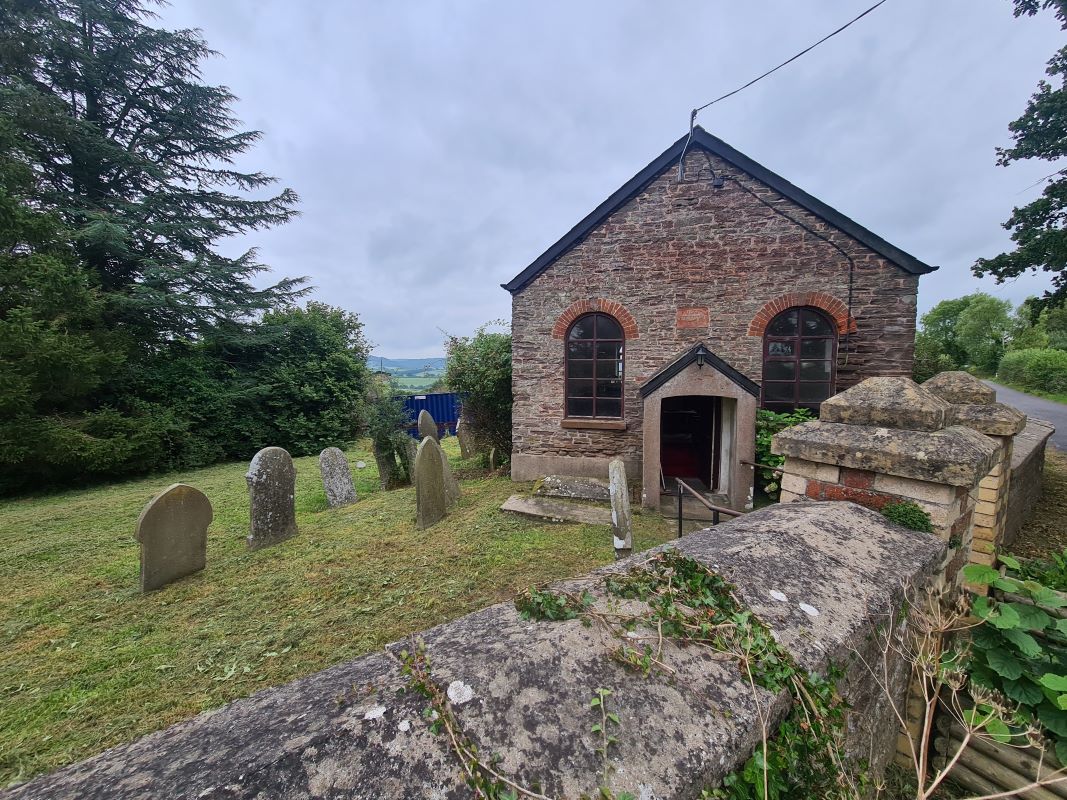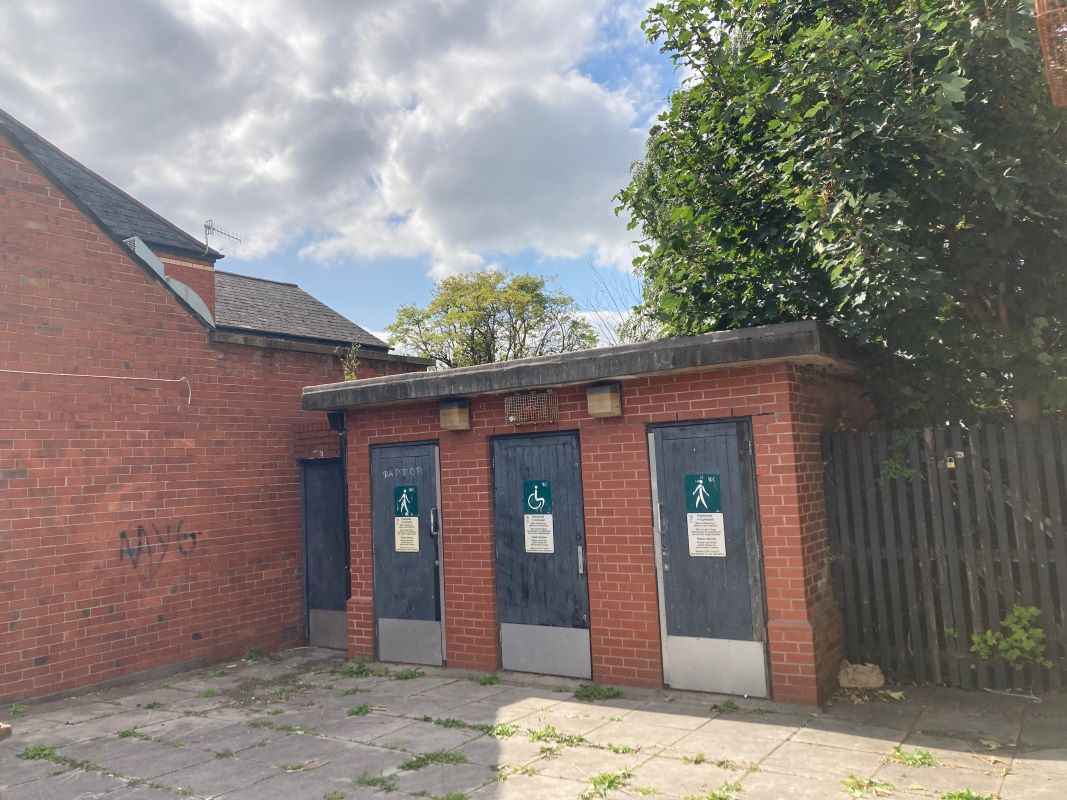Hospice is onto a winner as Christmas fair moves to racecourse
Gwent hospice at home nurse brings care to end-of-life patients
AS GWENT looks set to be battered by storms over the weekend, spare a thought for those workers who have to be out in all elements,
One such person is hospice-at-home nurse Paula Jacobsen, who brings compassion and care to end-of-life patients throughout the rural area she covers.
Yes, Paula says, it’s a challenge, made more so during the pandemic. And at times it’s an emotional rollercoaster but the nurse with a life time’s nursing experience, wouldn’t have it any other way.
Paula, a specialist end-of-life hospice-at-home nurse who cares for patients in their homes, believes she has the best job in the world.
Paula has been in nursing for 39 years, latterly employed by Newport-based St David’s Hospice Care as part of its Hospice at Home team
Paula, aged 56, who lives in Caerphilly, retired from her role as a district nursing team manager and took up her present position covering south and mid Powys. One of a large team, Paula sets off at night for places as diverse as Brecon, Ystrad, Builth, Llandrindod Wells, Rhayadar and surrounding areas in her ‘beat’.
And, no matter the weather, Paula and the team she works with make sure their patients do not miss out.
She said: “We work closely with specialist palliative and primary health care teams supporting patients and their families in respecting wishes and allowing a patient to be cared for and die at home or an environment of their choice with the necessary care, comfort and dignity.”
“Working during the pandemic has added to the challenges. It’s been stressful at times, having to wear PPE which can cause barriers especially when caring for someone who is dying and family who need support.
“Being unable to give a patient or family member a ‘hug’ to show that you care is difficult. Keeping two metres away unless delivering care. Not knowing if you, yourself, will contract the virus.
“Palliative care has always been a love of mine. It is an honour and a privilege to care for someone in the last days of their life.”
St David’s Hospice Care chief executive Emma Saysell said: “It’s a very difficult job which is made even more challenging with the rural nature of the area in which Paula works in Powys. We are committed to doing our utmost to allow patients the choice of where they want to die and doing everything we can to ensure that if that is at their home that they are as comfortable as they can be at all times especially at the end.
“Paula is an excellent example of our nurses who strive, even in the most trying of situations, to deliver their excellent care to their patients in Powys every day of the year, come what may.”
During the year more than 48,000 hours of care were provided by St David’s Hospice Care Hospice at Home service enabling patients to remain in their own homes if that was their choice. More than 99 per cent of patients who received Hospice at Home care were able to die at home or their usual place of residence.
St David’s Hospice Care strives to provide patients with real choice about where they receive their care and their pace of death. Across the entire service an average of 88 per cent of patients died in their preferred place.
A patient’s family said: “The Hospice at Home service made all the difference and allowed us to keep dad at home until the end which we couldn’t have otherwise have coped with. Thank you
Another said: “The nurse that came was a pleasure to have in our home. The night she came to care for my mum I slept for the first time in two weeks. Thanks to her care of my mother that night.”
[from South Wales Argus]
Ex-jail in Powys town for sale with £210,000 price tag
A Grade II listed former jail has gone up for sale in a Powys town for just over £200,000.
The Old Gaol, on Gaol Road in Montgomery, dates back to 1832.
And it’s something of a throwback, with an arched gateway, its own grounds, and a number of original features including a towering cell wall.
Sean Roper, of Newport, Gwent-Based Paul Fosh Auctions, which is selling the historic building, says its rural location and ‘uniqueness’ could make the property a “real steal”.
He said: “The former gaol, in the ancient border town of Montgomery, is a unique and quirky historic building which will, I would think, appeal to a new owner looking for something that is completely out of the ordinary and that is a little, or a lot, different to anything else on the market. The new owner will most probably be keen to put their own stamp on this wonderful historic property.
“The Grade II listed former gaol, which is being sold by its private owner, is steeped in history and retains intriguing indications of its past use as a gaol in the early 19th century with, for example, the high walls of a former cell block of the former custodial centre forming an integral part of the building.
“I would think that the property, right in the middle of Wales but very close to the border with England which is about a mile away, could well appeal to someone from the English Midlands, places like Birmingham or Coventry that sort of area, as the road connections to that area are very good.
“It could also be used as a unusual airbnb property or with some investment renovated into a complex of luxury apartments as it’s in such an idyllic, breath-taking location close to Offa’s Dyke.
“It’s a bit of a blank canvas really. This sort of Grade II listed property in its wonderful location close to various areas of natural beauty doesn’t come up very often so I’m confident it will create a great deal of interest.
“The building is approached via Gaol Road with the impressive arched grandiose gateway immediately in view, this being a separate property but retaining pedestrian access through the archway to the old gaol. Alternatively there is vehicle access to the right leading to a parking bay and gardens with scope for further parking bays if required.
“The property was previously converted to seven flats by a housing association with a mix of one and two bed units. It now offers scope for improvements and the potential to reconfigure with either higher spec flats, holiday accommodation or even as a single, a large family dwelling, subject to necessary planning consents.”
The former Montgomery gaol, along with some 80-plus other properties is listed for sale online at Paul Fosh Auctions from noon on Tuesday, December 7 and ends from 5pm on Thursday, December 9.
[from Powys County Times]
An old county jail that now houses seven flats could be your next renovation project
A night in a jail cell or a stretch locked up at Her Majesty’s pleasure is not an experience that surely anyone would look forward to.
But maybe if the building in question is a slice of Welsh property history and an opportunity to secure ownership of seven homes, then the chance to explore this jail is an experience wrapped in excitement.
At the end of a quiet residential street the robust jail lurks behind a thick hedge and is, at first glance, not an obvious former clink.
From the outside the unique site is definitely visually arresting and tempts you to discover more.
On foot, you are greeted with a fancy stone gatehouse that includes distinctive carved detailing, although this is not part of the sale but the way to walk to the main jail behind.
The large jail then rises up to block the horizon and, although only a portion of what was once standing, is still an imposing structure.
There are cell bars still in place on some of the windows and the thick, almost ominous walls remind you that this was a place where people once approached with stomach-wrenching dread.
According to website British Listed Buildings the county jail was built between 1830-1832 at a cost of around £10,000, on land bought from Lord Powis in 1827.
The website states that the jail was designed to a standardised plan, in the shape of a cross, with the governor’s house at the centre, overlooking four prisoner wings.
There is said to have been a felons’ yard and a vagrants’ yard, with the walls measuring up to 20 feet high.
The jail had six wards, each with airing yards, in two of which was the treadmill and engine house to pump the water supply.
The site had an infirmary and chapel and an entrance lodge where it is said that executions took place on its roof.
In 1866 the new, fancy stone gatehouse was added to the site. This is a separate property and not included in the sale of the jail, but it is the unique way you walk to the prison behind – through the archway.
Large sections of the site have sadly not survived. The jail closed in 1878 and was sold to a local wine merchant for £1,450 who then demolished much of the site and sold the stone.
The site gained a Grade II listing from Cadw in 1982, amended in 2005, for ‘its special historic interest as the surviving portion of an earlier 19th century county gaol’.
Inside, some original features such as an old cell block wall, cantilevered stone staircase with iron balusters, moulded cornicing, multi-paned sash windows and some vaulted ceilings remain, although the windows still sporting their iron prison bars are arguably the best find.
The remains of the building were carved up into seven flats by a housing association, a mix of one and two bed units that are now ready for a schedule of renovation and an interior design refresh.
Sean Roper, of Newport based Paul Fosh Auctions who are selling the building, says: “The old jail, in the ancient border town of Montgomery (Trefaldwyn), Powys is a unique and quirky historic building.
“It will, I would think, appeal to a new owner looking for something that is completely out of the ordinary, different to anything else on the market.
“The jail is being sold by its private owner, and is steeped in history. It retains intriguing indications of its past use as a jail with, for example, the high walls of a former cell block of the former custodial centre forming part of the building.
“This sort of Grade II listed property in its wonderful location close to various areas of natural beauty, the Snowdonia national park is not far from the property, doesn’t come up very often so I’m confident it will create a great deal of interest.
“I would think that the property, right in the middle of Wales but close to the border with England about a mile away, could well appeal to someone from the Midlands, places like Birmingham or Coventry that sort of area, as the road connections to that area are very good.
“The new owner will most probably be keen to put their own stamp on this wonderful historic property.
“It could also be used as an unusual Airbnb property or with some investment renovated into a complex of luxury apartments as it’s in such an idyllic, breath-taking location close to Offa’s Dyke.
“It’s a bit of a blank canvas really.”
The picture that is painted from the property’s past is one of torment and despair and even death.
But the future for the jail will hopefully see it transformed into luxury homes where you’ll be happy to be locked up at night.
Subject to planning consent, the property could be a spectacular family home or a mix of a home and holiday let business.
The building is going under the hammer with Paul Fosh Auctions at a guide price of £210,000.
The auction will be online on the Paul Fosh website between Tuesday, December 7 and Thursday, December 9. Call the auction house on 01633 254044 or joint selling agent Hunters on 01597 825644 to find out more.
[from Wales Online]
Gwent Recruitment Boss Reminisces After 22 Years in Business
A Gwent man who started his recruitment firm on a shoestring is celebrating 22 years in business.
Entrepreneur Ross Porter recalled how he sold almost all he had to raise the money to get started after working as a temporary worker for a Newport recruitment agency.
Ross, who was named Gwent Young Entrepreneur of the Year shortly after establishing Draig Personnel in 1999, reflected on the changes in the industry over the two decades.
Ross, managing director of Clear Sky Recruitment, who lives in Blackwood, Caerphilly, said:
“Having grown up on a council estate in north Wales in the 1970’s and 1980’s, luxury items, financial security and holidays were just dreams for me, as they were for many.
“But I was determined to better my situation and to make something of myself that I hoped would, one day, make my parents proud of me. From an early age, I felt that I was always destined to work for myself and to live and die by my own sword.
“I suppose I fell into the recruitment sector, almost by accident. I worked on several temporary assignments for an agency based in Newport after I’d finished studying Business and Finance at college in Newport in 1993.
“I’d go into the agency’s office on a Friday to collect my payslip and I remember thinking that I would like to be the other side of the desk one day. My pay was £3.60p/hr and I never missed a shift while working for the agency and I undertook a range of assignments ranging from a Lab Technician to an Accounts Assistant.
“I eventually gained a permanent role in a sales environment, in which I quickly progressed to management level, but the idea of running my own recruitment agency simmered away in the back of mind.
“In 1999, I’d met Claire, who later became my wife and with her encouragement and help, I decided to take the plunge and to set up my own recruitment firm.
“I decided upon Caerphilly as a location. I sold almost everything I had to raise the money to start-up and my journey in the recruitment world began, on a shoestring, on November 1, 1999 when Draig Personnel opened its doors as Caerphilly’s first recruitment agency.”
Ross said:
“I have always been a people person and I felt that my combination of sales skills and sheer determination to make a better life for myself would be a good fit for the industry. It almost felt like fate.”
Ross said the hours worked to establish and then run the business took its toll on his work/life balance.
“Looking back perhaps I would not have worked so many long hours when our children were so young. The irony of it was that I working all those hours to provide the best life I could for my family but as a result, I sometimes missed out on some quality time, despite my best efforts not to.
“The one thing to keep at the forefront of your mind is to remember that you can get money and material things back, but you can’t get time back. It’s all about getting the work /life balance right. It’s taken me quite a few years to realise this.”
Ross says the recruitment industry has changed immeasurably over the years in some ways but in others it has remained the same
“The world of recruitment was so different back in 1999. I remember having one PC, a landline phone, a pager and a fax machine when I first started out. The internet was a new thing, but it took a while for businesses to embrace and to fully use it, so the fax machine remained the hub of our business communications for quite some time. All of our candidate details were handwritten on index cards, it was basic, but we made it work.
“The minimum wage came into play in 1999 and it was £3.00p/hr for 18-21 yr olds and £3.60p/hr for over 21yr olds. Due to the industry being in the infancy stage of technology, it was even more of a people orientated sector. More telephone calls and face to face meetings took place and we even used to use paper timesheets for the temporary workers back in the day.
“Today, the industry is heavily regulated, which is not a bad thing and technology now plays as much of a part as do the people. Technology has been a game-changer for the recruitment sector as it has been to almost every sector of industry.
“If you’d suggested to me 22 years ago that my business would have its own App on a mobile phone that would allow candidates to be notified of job vacancies, to build a CV, watch or complete inductions and many more things, then I would have thought you were dreaming.
“Although technology has altered, almost beyond comprehension, the skills and attributes that were in demand back then haven’t changed dramatically, however, even the more basic roles require the candidates to be tech savvy on occasion these days.
“As far as I am concerned, nothing much has changed as regards to candidates’ approach to work. It’s all about attitude and doing what you say you will do.”
But the market and specific skills have changed over the past 22 years.
“Being predominantly a manufacturing recruitment specialist, I have seen a substantial change in the market over the years. In the early 2000’s when the Japanese companies seemed to be setting up everywhere in the south Wales valleys and the Welsh manufacturing sector was flying.
“As time went by, lots of these companies moved their operations elsewhere and the sector declined for some time. We then saw a boom in the contact centre sector in Wales, which again has now slowed.”
How should employers treat the current ‘buyer’s market’?
” They need to work closely with their HR department or trusted recruitment agency. They need to offer the most competitive salaries, provide fast feedback to the candidate / agency with regards to applications and they must look after their existing workforce more than ever.”
The role of technology will dominate the sector even more than it does today. And Ross’s prediction for the future?
“The continued evolving of technology will help job seekers and recruiters to fulfil vacancies, quicker and more efficiently than in years gone by.
Ross, a graduate of Newport College of Higher Education has several business interests including a work wear factory, a craft gin distillery and a boutique candle business based in Blackwood, Caerphilly.
[from Business News Wales]
Does the Chancellor have any more rabbits to pull out of his Budget hat?
“We already know much of what is to come in the Autumn Budget this Wednesday, as for days the treasury has been releasing swathes of funding announcements,” says Newport-based Kymin Financial Planners Managing Director Robin Hall.
“There have already been big changes to taxes announced with the increase in national insurance contributions to provide more money for the NHS and potentially later for social care. Although many conservative MPs would like to see tax cuts, the chancellor announced on Sunday that you must look at what the Government has had to deal with for the last 18 months with “the biggest economic shock that we have experienced in 300 years.”
“So, it seems that even a small cut in business rates as many businesses had hoped has now been ruled out by the chancellor too, let alone cuts in taxes in other areas.
“He is expected to announce that the national minimum wage will rise from £8.91 per hour to £9.50 as well as looking at an increase in public sector pay.
“A £5.9bn has been announced for tackling the NHS backlogs in England as well as £2.1bn to modernise IT across the NHS.
“£6.9bn has been announced to implement a “local transport revolution to level up commutes and journey times” outside London, with the majority going on train and station upgrades with £1.2bn for bus services. However, Sunak later confirmed that only £1.5bn of this pot was new money. Air passenger duty is also likely to be overhauled to reflect the environmental damage caused by long-haul flights.
“There have also been announcements around borders and crime as well as for the arts and sports sectors as well as education.
“As usual around the budget there is much speculation as to whether there will be reforms to pensions. The pension industry has called on the Chancellor to stay away from radical reforms and instead to tweak the existing rules to help individuals to save more.
“Tax relief is one area of concern, with fears that any big changes could cause major disruption. Currently tax relief on pensions is paid at the saver’s marginal rate of income tax when saving and the pension is taxed at the point of withdrawal. The threat to changes to pensions tax relief such as a flat rate for all or even a cut to high earners relief has been mooted for years but tends to resurface each year in the days before the budget.
“In previous years there have been concerns that the government was looking to cut high earners relief to 20% or move to a 25% flat rate.
“Also, something else to keep an eye on is whether there will be any changes to further increase the normal minimum pension age going forward. Many in the industry say a further increase would complicate the pension system even more and should be paused. Currently you can access most private pensions from age 55, but this is being increased to age 57 from April 2028, reflecting the long-term increases in longevity and changing expectations of how long people will remain in work and then in retirement.
“The government has previously said it wants to reduce the earning limit for auto-enrolment pensions from the current £10,000 per year as well as cutting the age of eligibility from the age of 21, but nothing has happened up until now.
“With many plans already announced ahead of tomorrow’s actual announcement,, it will be interesting to see what the Chancellor has left up his sleeve, we will be watching the budget with eager eyes and will produce a report in the days following. “
Idyllic Monmouthshire chapel sells at auction
A former stone built chapel and graveyard in the hamlet of Kingcoed, near Usk, in the heart of the Monmouthshire countryside has sold at auction.
Kingcoed Baptist Chapel, dating back almost 200 years, was sold by Newport-based Paul Fosh Auctions after a pair of bidders battled to secure the idyllic property at auction.
Listed with a guide price of £80,000-plus the tiny single storey detached chapel, complete with pews, sold for £89,500 after 15 bids.
New owners will also have to make arrangements for water, sewage and gas, as the only service to the property is electricity now worship at the historic chapel has ended.
Gemma Vaughan, of Paul Fosh Auctions, said: “The property is currently untouched and set out as for its former use as a chapel even with rows or pews. This wonderful, detached former chapel will need updating for future use perhaps as a chic rural home, subject to planning.
“The chapel is quietly located on a scenic ridge between relatively bustling Raglan and even more bustling Usk. The locality offers a range of amenities including brilliant independent shops, post office, Dr’s surgery, chemist, pubs, garage, schools, vets and restaurant. There is great access to the A449 and A40 which provides links to the wider region including places such as Newport Cardiff and Bristol.”
Shutters brought down on sale of ‘smallest shop in south Wales’
A high street shop in South Wales, no wider than a pair of outstretched arms and shorter than a cricket wicket, sold at auction for £32, 250.
The slim High Street, Blackwood, lock up retail unit, thought to be the smallest shop for sale in South Wales, previously traded as a mobile phones shop.
Located at Central Buildings in the former mining town in Caerphilly borough and
squeezed in between a shoe shop and an opticians, the shop measures a measly 11.5 sq m (123.7 sq ft.)
The bijou Gwent property attracted five bidders eventually selling for £5, 250 more than its guide of £27,000 after 16 bids.
Debra Bisley, of Newport-based Paul Fosh Auctions, was confident the pocket-sized property, just four and a half feet wide with a depth of 28 feet, would be just the right fit for a small business with big ideas.
Bringing the shutters down on the sale Debra said: “We believe that this is surely the smallest shop for sale in South Wales. Although it’s small it’s in an ideal spot for the right business.”
“The shuttered shop has previously traded as a vape shop, a sweets stall and as a sandwich bar. The possibilities for the space may not be endless but with some imagination it could become perhaps a takeaway coffee shop, card shop, small boutique or perhaps a mobile phone repair outlet or bijou beauty salon or nail bar.
“The shop, sandwiched between ShoeZone and Specsavers and with a range of independent and national traders nearby, has a kitchenette at the back so there’s a start for the entrepreneurial cafe owner at least.”
“Ideally located on the thriving High Street of Blackwood, this property benefits from plenty of footfall.”
There’s no chain but you may need to spend a few pennies to buy this former Newport public loos at auction
Buyers were bursting to spend their pennies in a effort to buy a vacant public toilet block Newport when it went for auction this week,
The block created so much interest that it was eventually sold for more than five times its guide price
The convenient property ideally located next door to a pub and on a main route into the city of Newport was being offered without a chain.
The modern toilet block and forecourt, on busy Caerleon Road next door to The Victoria Inn, at the junction with York Road, was sold by Newport-based Paul Fosh Auctions.
Early bids for the three booth toilet complex and forecourt were soon flushed out as the price rocketed past the £15,000 guide eventually selling for £60,000 more, at £75, 250.
Debra Bisley, who handled the sale for Paul Fosh Auctions on behalf of Newport City Council, said: “The toilet block was be sold with vacant possession. Bidders were really engaged with this property. We had a total of 18 bidders making a staggering 158 bids before it eventually sold for £60,250 more than the guide of £15,000.
“The modern, three cubicle block is in a very convenient spot right on Caerleon Road. It is far from a bog standard property and has great potential for a new owner.
“Clearly bidders saw the toilet block as a great opportunity to purchase a single story, detached, property located close to the centre of Newport. Caerleon Road is one of the main thoroughfares leading to Newport city centre. The road comprises commercial as well as residential properties, with a good level of footfall.”
This is not the first time Wales’ leading property auction business has engaged in the marketing and subsequent sale of a former public convenience.
Debra said: “Perhaps the most creative and unusual re use of a former public WC to date was actually here in the city of Newport. We were involved in the marketing of a derelict Grade II listed, Victoria era loos in Alexandra Road, in the former dockland area of Pill. The elaborate toilet block was bought for £15,000 and converted. It is now the Phyllis Maude Performance Space and reckoned to be the tiniest venue of its type anywhere in the UK.”










